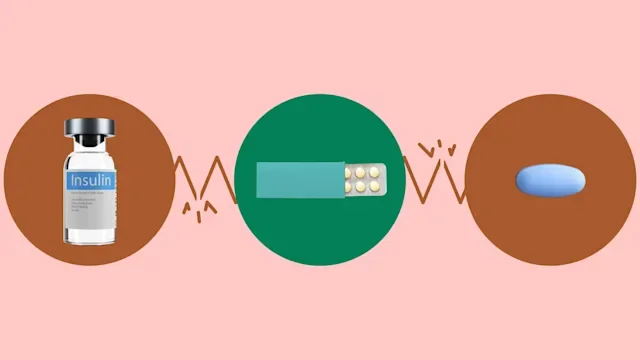Many people hear the term “heart failure” and immediately think it means the heart has stopped working. “People think of heart failure as a condition where it’s ‘doom and gloom,’ and you’re just going to be bedridden,” says cardiologist Nieca Goldberg, MD, medical director at NYU Langone Health, Joan H. Tisch Center for Women’s Health. “That’s not the way it is anymore.”
More than 6 million Americans are living with heart failure; over 900,000 new cases are diagnosed each year. Heart failure is a very manageable and treatable condition.
So, What Is Heart Failure?
Heart failure occurs when the heart muscle has become weak and can’t pump blood well enough to meet the body’s needs. Basically, it can’t keep up with its workload. “Heart failure is a condition where either your heart doesn’t pump well, or your heart doesn’t relax well,” says Michelle Weisfelner Bloom, MD, cardiologist at Stony Brook University Medical Center.
Half of heart failure patients have reduced ejection fraction, which means the heart doesn’t pump well. The other half have what’s called preserved ejection fraction, which means the pump works, but the heart has a problem relaxing.
Symptoms of Heart Failure
There are no routine screenings for diagnosing heart failure; the initial doctor’s visit is often due to a patient’s concern about unusual symptoms. These symptoms of heart failure stem from two key issues: congestion and perfusion.
During congestive heart failure, blood flows too slowly out of the heart, and the blood trying to return to the heart gets backed up and causes congestion. This causes blood to pool and collect around the heart and in the veins. This can lead to:
Shortness of breath
Discomfort while lying flat and needing extra pillows
Gasping for air in the middle of the night
Edema, or swelling in the legs and belly
“Pitting” in the swelling (when you press down on a swollen skin area and are left with an indentation)
Perfusion from heart failure can lead to other symptoms. “Perfusion is the amount of blood that’s getting to all the organs in the body,” says Dr. Bloom. “If that pump isn’t working well, then you might not be getting enough blood supply to the different organs.”
Not enough blood supply translates to not enough oxygen, and all the organs, including the brain, can be affected by poor perfusion. This may cause:
Fatigue
Dizziness
Fainting
Heart Failure Risk Factors and Causes
“In America, the most common cause of heart failure is heart disease,” says Rachel Bond, MD, a cardiologist at Lenox Hill Hospital. Coronary artery disease can lead to heart failure by blocking blood flow to your heart muscle. “Not having blood flow to your heart muscle weakens that muscle and can even kill that muscle,” says Satjit Bhusri, MD, a cardiologist at Lenox Hill Hospital in New York City. “And now you don’t have that part of the muscle contributing to the ejection fraction, or the strength of that pump, to push blood forward.”
If coronary artery disease isn’t the problem, there are many other factors that can lead to heart failure, including:
Heart valve problems
Arrhythmia (abnormal heart rhythm)
Excessive drug or alcohol use
Heart attack
High blood pressure
Diabetes
Certain cancer therapies can lead to heart failure as well. “If a patient is on a chemotherapy agent, particularly for breast cancer for example, that can also weaken the heart,” says Dr. Bond.
Treatments for Heart Failure
After you’re diagnosed with heart failure, your doctor will likely suggest a treatment regimen. This may include a series of lifestyle changes and medications to treat heart failure, or devices or surgery.
The success of heart failure treatment greatly depends on your commitment to managing the condition by following your doctor's recommendations and making the necessary changes in diet, exercise, and lifestyle to give you the highest possible quality of life.
“Heart failure can be heart success,” says Dr. Bhusri. “And it gets to be heart success if you really make it into a life event.”
Dr. Goldberg is a Cardiologist and served as the Medical Director of the NYU Langone Health Joan H. Tisch Center for Women’s Health. She is currently an Associate Clinical Professor of Medicine at NYU Grossman School of Medicine.
Dr. Bloom is a Cardiologist, an Associate Professor of Medicine at Stony Brook University Medical Center, a fellow of the American College of Cardiology and the Heart Failure Society of America.
Rachel Bond, MD, FACC, is a Cardiologist at Dignity Health and served as Associate Director of the Women's Heart Health Program at Northwell Health, Lenox Hill Hospital and an Assistant Professor of Cardiology at Hofstra Northwell School of Medicine.
Dr. Bhusri is an attending cardiologist at the Lenox Hill Heart & Vascular Institute and an assistant professor of cardiology at Hofstra Northwell School of Medicine.
References
Andersson C, Vasan RS. Epidemiology of heart failure with preserved ejection fraction. Heart Fail Clin. 2014;10(3):377-388.
Virani SS, Alonso A, Benjamin EJ, Bittencourt MS, Callaway CW, Carson AP, Chamberlain AM, Chang AR, Cheng S, Delling FN, Djousse L, Elkind MSV, Ferguson JF, Fornage M, Khan SS, Kissela BM, Knutson KL, Kwan TW, Lackland DT, Lewis TT, Lichtman JH, Longenecker CT, Loop MS, Lutsey PL, Martin SS, Matsushita K, Moran AE, Mussolino ME, Perak AM, Rosamond WD, Roth GA, Sampson UKA, Satou GM, Schroeder EB, Shah SH, Shay CM, Spartano NL, Stokes A, Tirschwell DL, VanWagner LB, Tsao CW; American Heart Association Council on Epidemiology and Prevention Statistics Committee and Stroke Statistics Subcommittee. Heart Disease and Stroke Statistics-2020 Update: A Report From the American Heart Association. Circulation. 2020 Mar 3;141(9):e139-e596
Heart failure: overview. Washington, DC: U.S. National Library of Medicine. (Accessed on May 2, 2021 at https://www.ncbi.nlm.nih.gov/pubmedhealth/PMH0072723/.)
Types of heart failure. Dallas, TX: American Heart Association. (Accessed on May 2, 2021 at http://www.heart.org/HEARTORG/Conditions/HeartFailure/AboutHeartFailure/Types-of-Heart-Failure_UCM_306323_Article.jsp#.WsuQk5M-fVo.)
Medications Used to Treat Heart Failure. Dallas, TX: American Heart Association. (Accessed on May 2, 2021 at http://www.heart.org/HEARTORG/Conditions/HeartFailure/PreventionTreatmentofHeartFailure/Medications-for-Heart-Failure_UCM_306342_Article.jsp#.Wr0VtpPwaL4)
What is Heart Failure? Dallas, TX. American Heart Association. (Accessed on May 2, 2021 at
Lifestyle Changes for Heart Failure. Dallas, TX. American Heart Association. (Accessed on May 2, 2021 at http://www.heart.org/HEARTORG/Conditions/HeartFailure/TreatmentOptionsForHeartFailure/Lifestyle-Changes-for-Heart-Failure_UCM_306341_Article.jsp#.Wr0eE5PwaL4)
Heart Failure. Washington DC. U.S. National Library of Medicine, MedlinePlus. (Accessed on May 2, 2021 at https://medlineplus.gov/heartfailure.html)

Why trust our experts?














